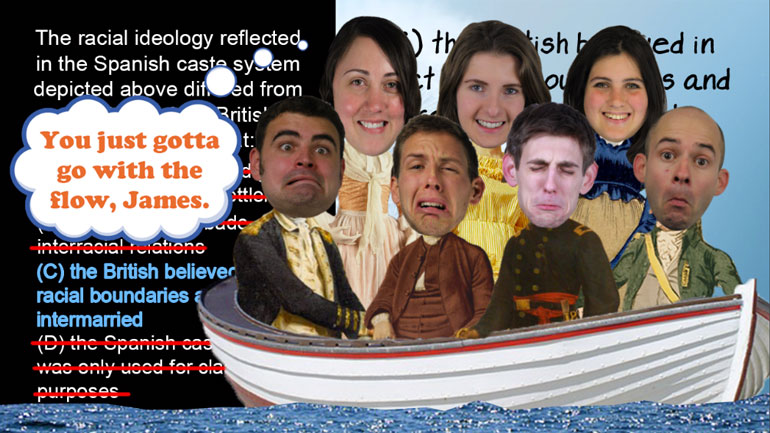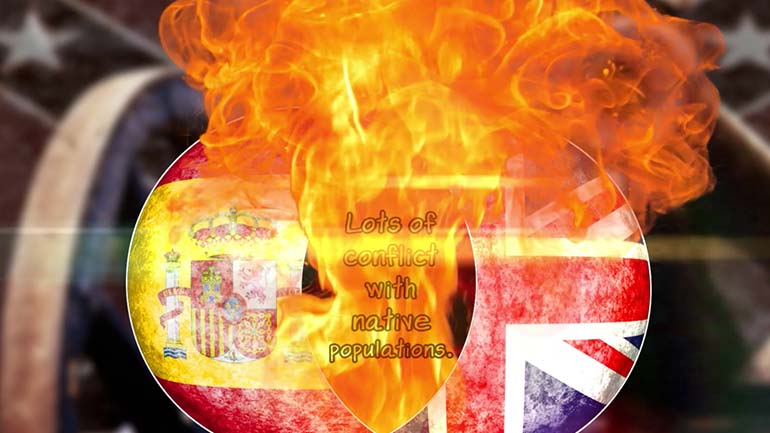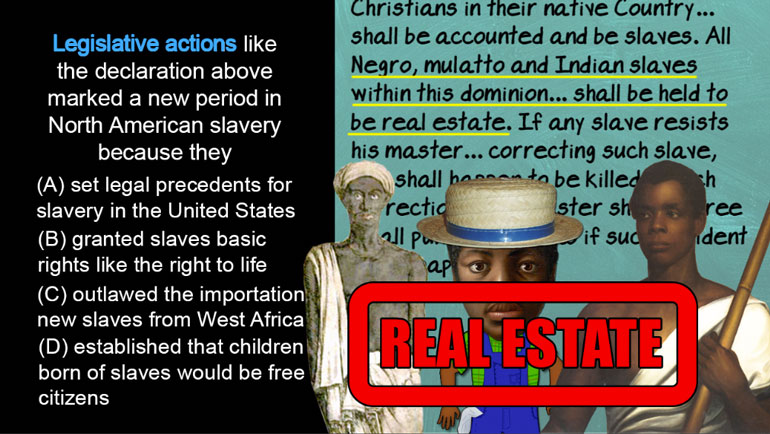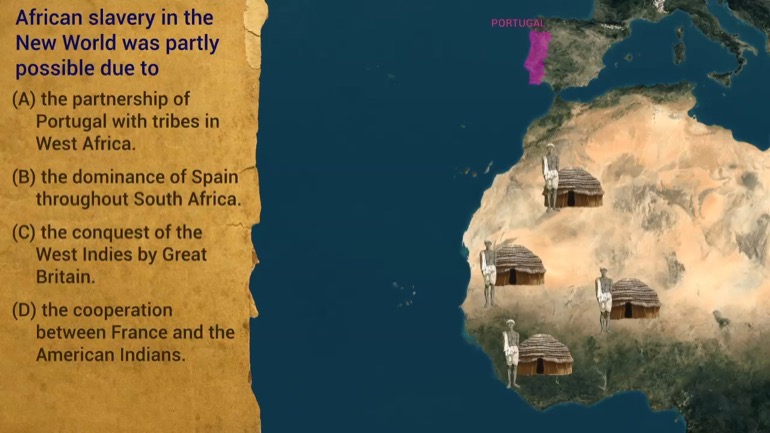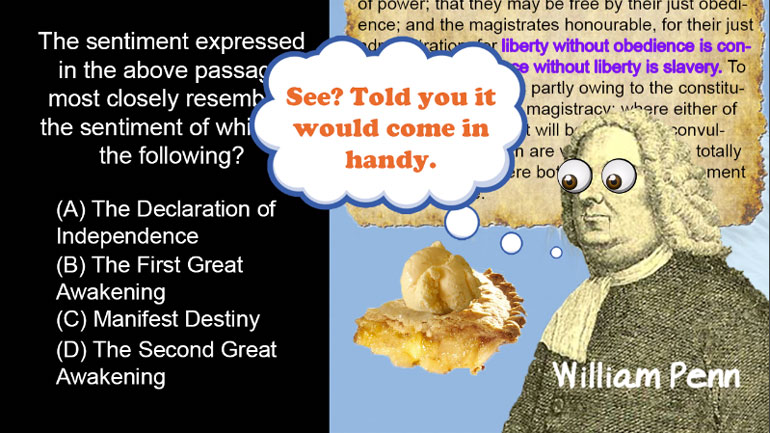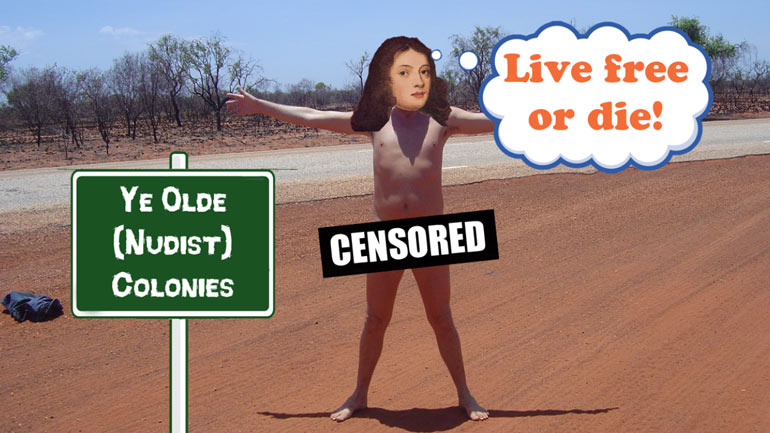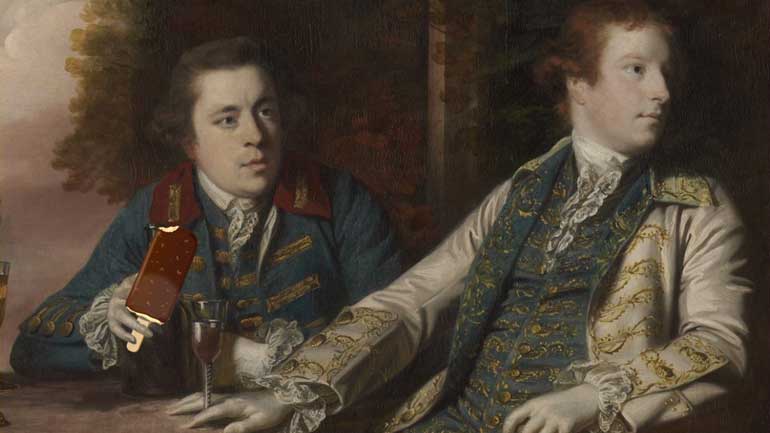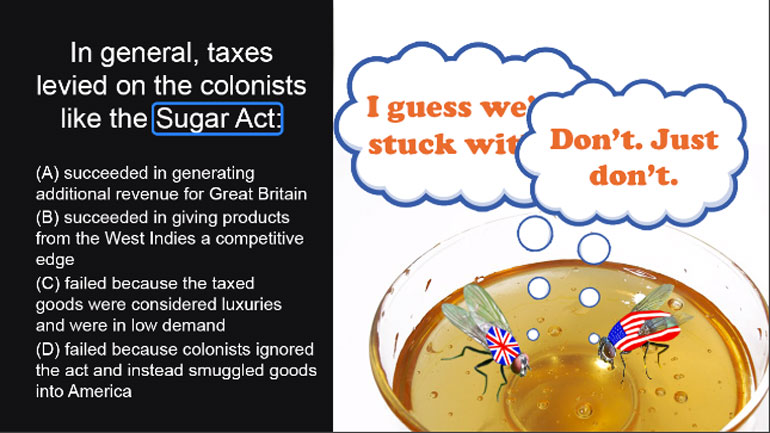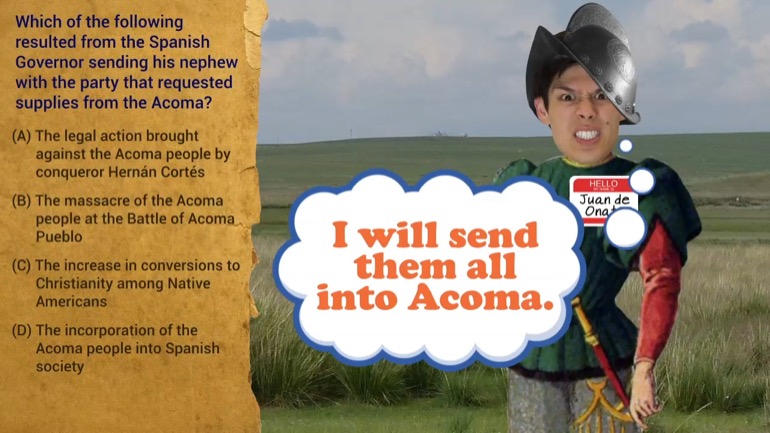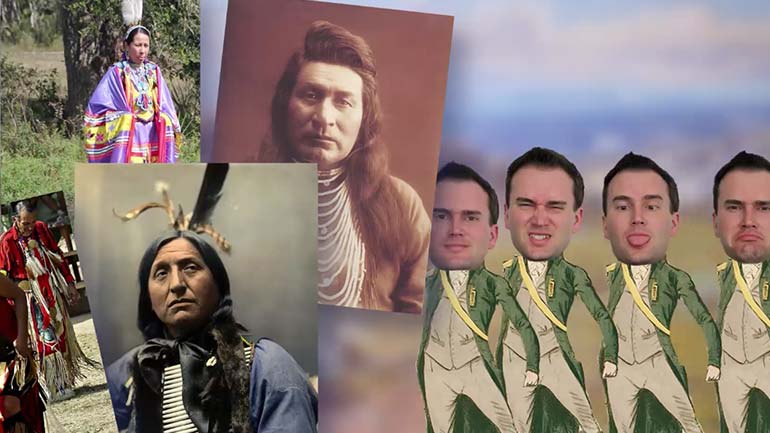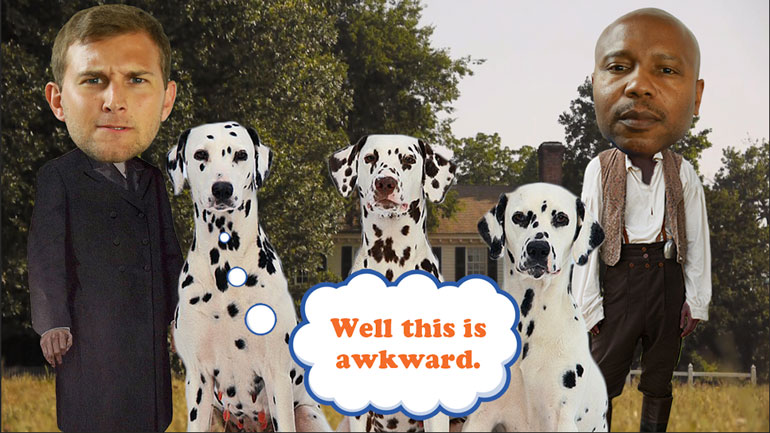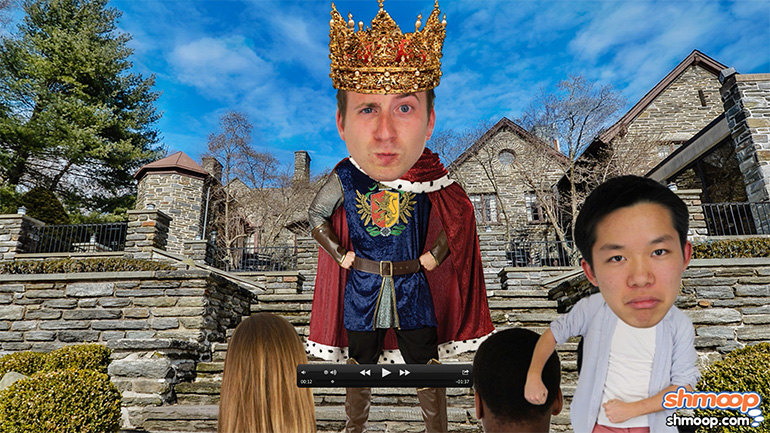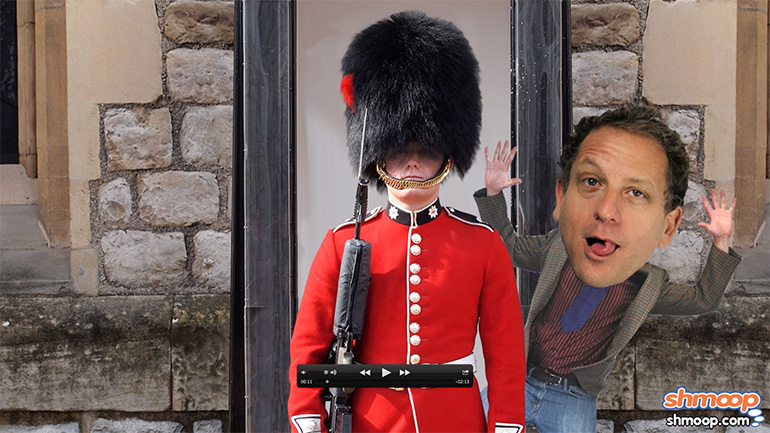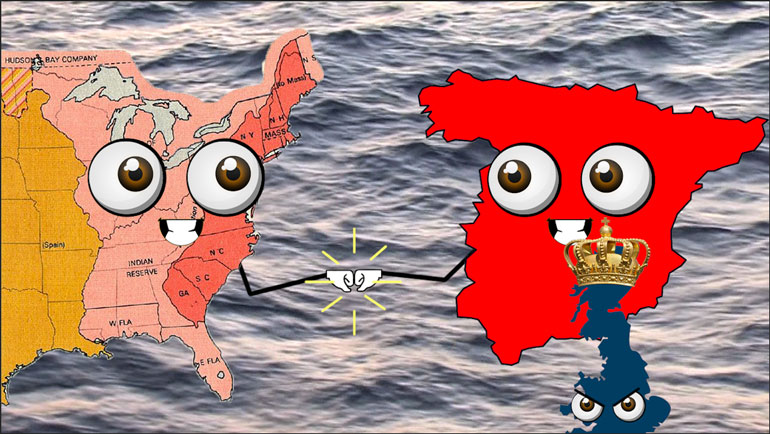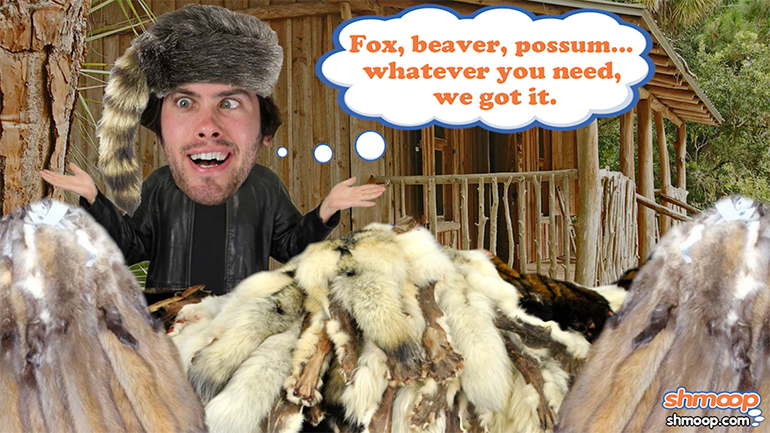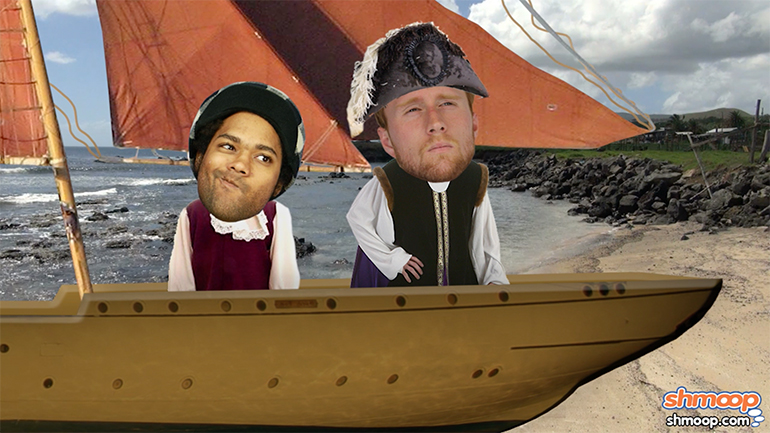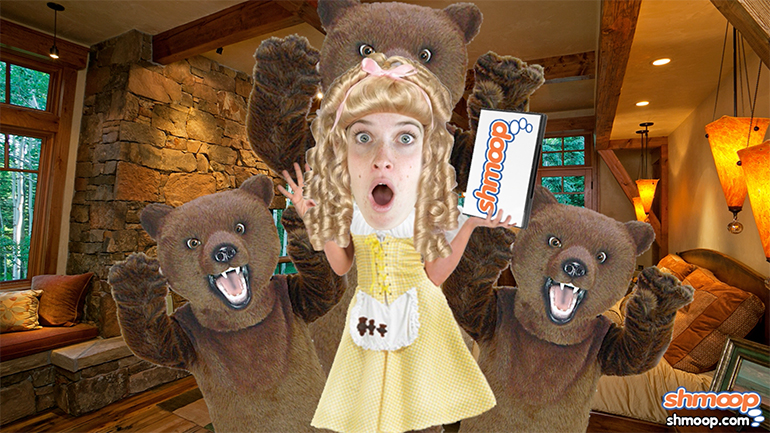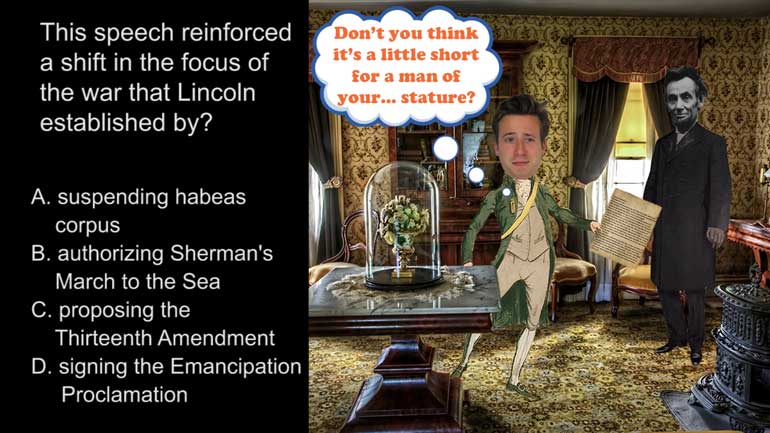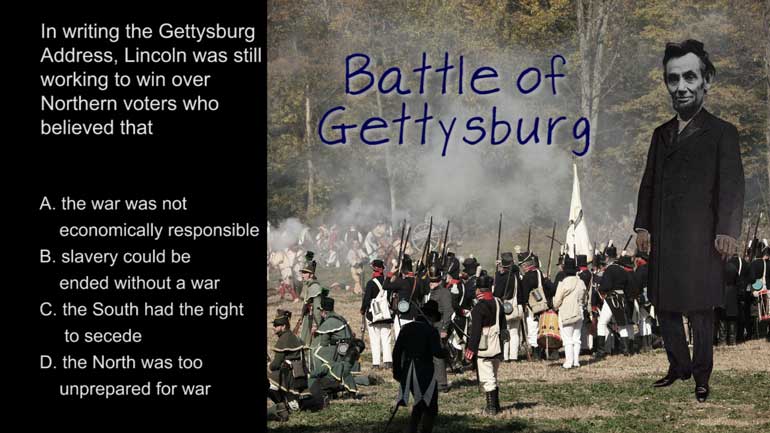ShmoopTube
Where Monty Python meets your 10th grade teacher.
Search Thousands of Shmoop Videos
Period 2: 1607–1754 Videos 18 videos
AP U.S. History 1.1 Period 2: 1607–1754. The racial ideology reflected in the Spanish caste system depicted above differed from the views of the...
AP U.S. History 1.2 Period 2: 1607–1754. Conflicts between Spanish colonizers and native populations, compared to conflicts between British colon...
U.S. AP U.S. History 1.3 Period 2: 1690-1754. Legislative actions like the declaration above marked a new period in North American slavery becau...
AP U.S. History 1.6 Period 2: 1690-1754 254 Views
Share It!
Description:
AP U.S. History 1.6 Period 2: 1690-1754. In the New England colonies in the mid-to-late 17th century, the freedoms described in the excerpt above were generally...what?
Transcript
- 00:01
We speak student!
- 00:04
And here's your Shmoop du jour, brought to you by a stinging sense of humor.
- 00:08
All right, give this excerpt a quick look.
- 00:10
[ mumbles ]
- 00:13
[ mumbling continues ] All right. Bill Penn.
Full Transcript
- 00:17
And the question:
- 00:18
In the New England colonies in the mid-to-late 17th century,
- 00:21
the freedoms described in the excerpt above were generally...
- 00:26
what?
- 00:27
And here are your potential answers.
- 00:31
Okay, let's start out by figuring out exactly what
- 00:34
kinds of freedoms William Penn was talking about here.
- 00:36
There's a bit about
- 00:37
"power in reverence with the people."
- 00:40
And also that people "may be free by their
- 00:43
just obedience."
- 00:45
Huh.
- 00:45
Which basically means that people should be able to
- 00:47
participate in their government and have a say
- 00:49
in how their lives are lived.
- 00:53
Well, no wonder they named a state after that guy.
- 00:55
Yeah, he's pretty good.
- 00:56
So we just need to figure out
- 00:58
who in the New England colonies actually had
- 01:00
access to those freedoms.
- 01:02
Were those rights A - extended to worshippers of all faiths?
- 01:06
Well, you'd like to think so, but even though British colonists
- 01:08
fled to America to escape religious persecution
- 01:11
in their home country,
- 01:12
they were pretty intolerant toward people who didn't agree with them.
- 01:15
That's right. If you didn't believe in Jesus Christ,
- 01:17
there was pretty good chance you could be executed. Hmm.
- 01:22
Talk about Philly fanatics.
- 01:24
Yeah. So that knocks out A. Thank you, Brits.
- 01:27
All right. Were those freedoms B - available only for
- 01:30
Quakers and Mennonites?
- 01:32
Well, there were a lot of Quakers and Mennonites
- 01:34
in the Pennsylvania colony, but remember,
- 01:36
this question is asking us about all of New England.
- 01:40
And the other colonists really didn't like the Quakers.
- 01:42
So much so that in 1660,
- 01:44
four Quakers were executed in Massachusetts for heresy.
- 01:48
So that eliminates B, as well.
- 01:49
So then were these freedoms C -
- 01:52
rejected by Catholics and Jews?
- 01:54
Hmm.
- 01:55
Well, that doesn't really make sense at all,
- 01:56
especially because those religious minorities
- 01:59
would want these kinds of freedoms in the first place.
- 02:01
So that's a no-go on C.
- 02:03
Which must mean these freedoms D -
- 02:05
were limited to Protestants
- 02:07
and small pockets of other Christian denominations.
- 02:10
And that makes sense, right?
- 02:12
All those Puritans that were escaping religious
- 02:14
persecution - they only wanted freedoms extended
- 02:17
to people who were just like them:
- 02:19
white, Anglo-Saxon, and Protestant.
- 02:23
Yeah. WASP.
- 02:25
So D is the right answer.
- 02:26
Gives a whole new meaning to the phrase,
- 02:29
"hive mentality."
- 02:30
[ trumpet ]
Related Videos
AP U.S. History Exam 2.45. The journey shown on the map was an example of...what?
AP U.S. History Exam 2.26. This speech reinforced a shift in the focus of the war that Lincoln established by...what?
What did the Spanish messengers bring with them to North America? Hint: you probably wouldn't be thrilled to get this for your next birthday.
AP U.S. History Diagnostic 24. How did the United States choose containment over the National Security Council Report in Latin America?
AP U.S. History Exam 2.25. In writing the Gettysburg Address, Lincoln was still working to win over Northern voters who believed that...what?
